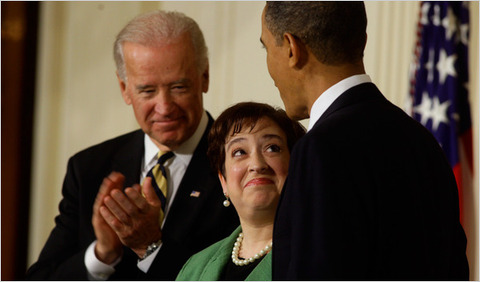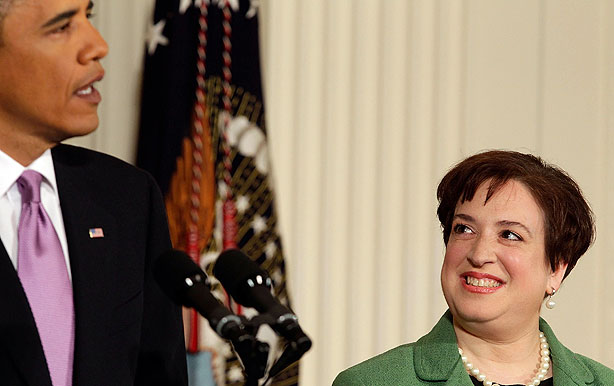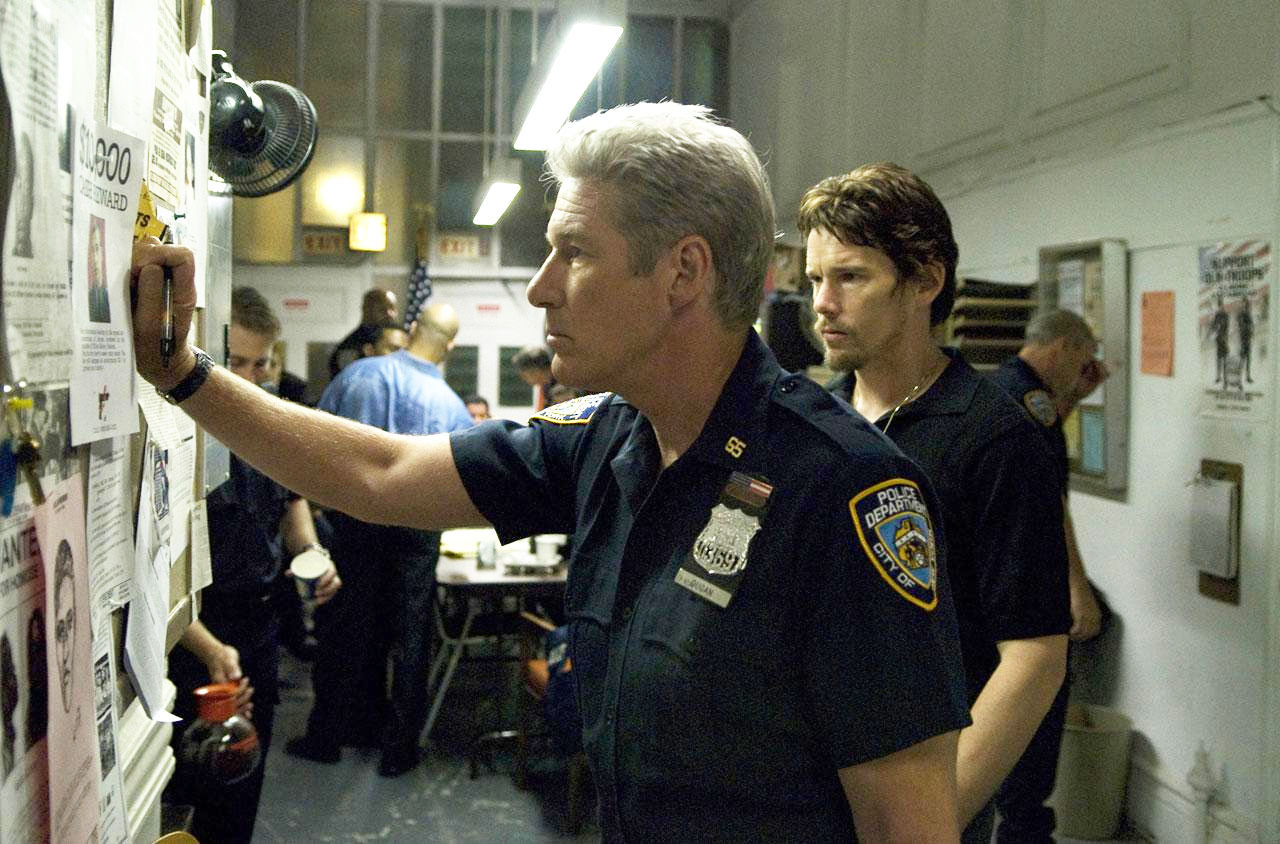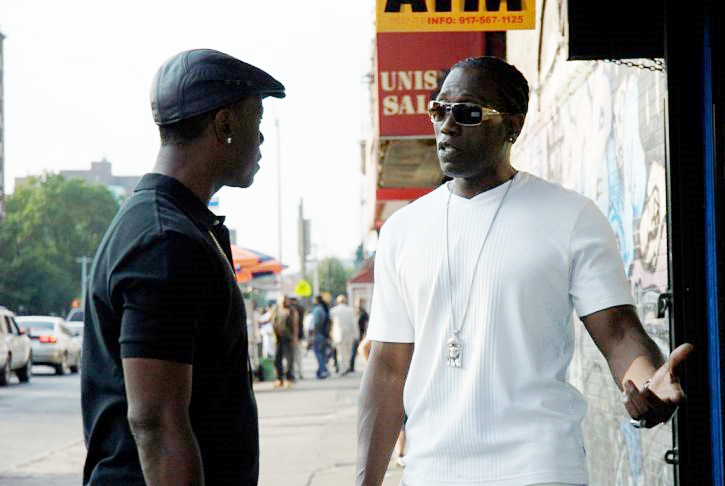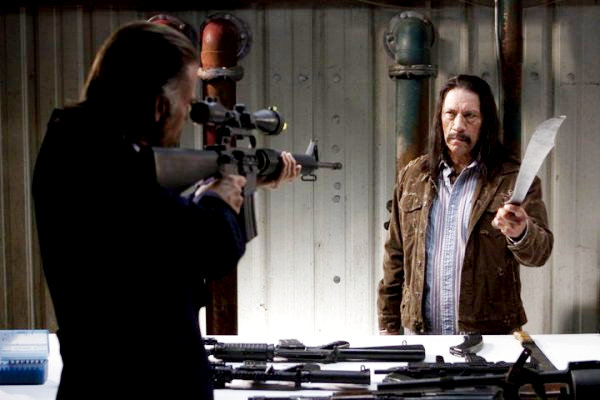
So having said that, I doubt that it will surprise anyone that Machete is more bad-bad than fun-bad, even going in with low expectations (and after libations.) I didn’t have a terrible time watching it, and I guess the movie basically succeeds at what it promised to be — an “ironic,” splatter-filled homage to and/or parody of terrible films of the ’70s. But the whole enterprise still felt really uninspired. In the end, Machete hits its marks, but it definitely doesn’t improve on the 90 seconds we saw of this flick in Grindhouse. (Hopefully we can expect more from Edgar Wright’s Don’t, Eli Roth’s Thanksgiving, or Rob Zombie’s Werewolf Women of the S.S., once they all get their inevitable day in the sun.)
While Danny Trejo plays the titular badass — a former Federale-turned-illegal-immigrant for whom “day labor” means cleaving through bad guys — with an admirable Lee Marvinish deadpan, a lot of the joking around in Machete involves stunt casting. This includes Steven Seagal as the Big Bad Mexican drug lord (has Seagal ever been in a good movie? Well, Under Siege, maybe), Robert De Niro as a sleazy race-baiting Senator (more on him in a sec), Jeff Fahey as the Karl Rove of Arizona, Lindsay Lohan as a druggy burnout, and the Nash Bridges team of Don Johnson and Cheech Marin as a racist cop and man of the cloth respectively. (Rounding out the cast: Jessica Alba is ludicrous as a INS detective on Machete’s trail, and Michelle Rodriguez once again does her Michelle Rodriguez thing as underground guerrilla leader “She” — inexplicably pronounced “Shee” insteady of “Shay.” Way to step on your own joke there.)
Well, ok, stunt casting is fun. In fact, one of the things I appreciated most about Rodriguez’s half of Grindhouse — Planet Terror — was both Fahey and Michael Biehn kicking around the movie. That being said, “Ha, it’s Robert DeNiro slumming it!” would probably work better as a joke if DeNiro wasn’t constantly, you know, slumming it these days. When he showed up in Meet the Parents ten years ago, it seemed pretty funny. Now, a la late-career Brando, Pacino, or Nicholson, it just seems kinda sad. (And like David Arquette outacting Harvey Keitel in The Grey Zone, Fahey probably gives a better performance than DeNiro does here. Trejo does for sure.)
Similarly, the meta-joke driving Machete — “Look, Robert Rodriguez made an intentionally bad film!” — suffers from the unfortunate fact that, ironically (From Dusk Til Dawn, Planet Terror) or not, Robert Rodriguez pretty much always makes B-movies. Even El Mariachi, the film that first put him on the map in 1992, is rather unmemorable, in my humble opinion. (I mean that literally — I can only remember the last 15 seconds of that flick — the pit bull and motorcycle and whatnot — which is still more than I can say for both Desperado and Once Upon a Time In Mexico.) For me, the one time Rodriguez struck gold was with Sin City, and that was mainly due to the wise, direct pilfering of Frank Miller’s “storyboards” — i.e., the original graphic novels.
All of which is to say, it’s hard to figure out in the end if Machete is a deft send-up of a bad movie or just a plain bad movie. (I had the same problem, to a lesser extent, with Trey Parker and Matt Stone’s Team America: World Police.) Like Kurt Vonnegut said in Mother Night, “We are what we pretend to be, so we must be careful about what we pretend to be.” I guess Rodriguez may just be pretending to be a hackish director of forgettable, derivative B-movies, but at this point he’s fooled me. (Maybe he should keep them trailer-length.)
Speaking of that original trailer, I’d recommend just watching that for your Machete experience, along with perhaps Machete’s Cinco de Mayo message to Arizona. Given both the virulence and the abject nonsense driving a lot of anti-immigrant hysteria these days, as well as the unfettered cravenness of the right-wing freakshows who most often push it, there was obviously room for some choice satire in this film. But, a few lines here or there aside, Machete is much more interested in playing with Z-grade movie tropes — breasts, blood splatter, and 70’s sound effects, say — than delving into any real political content about the borderlands. Eh, so be it — It’s Machete. It may be a missed opportunity, but it never pretended to be Traffic anyway.
The upshot here: Machete is (to no one’s surprise, I’m sure) eminently missable. But if you’re at all inclined to board this train, the two trailers cover 95% of the good stuff, so save yourself an hour and a half and just watch those. Having gone for the full ride myself, I left the theater with only one thought in my head: I’d just f**ked with the wrong Mexican.






